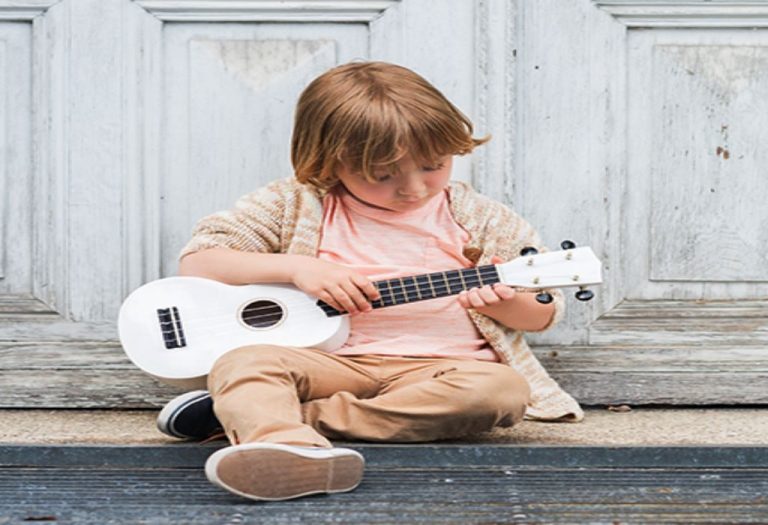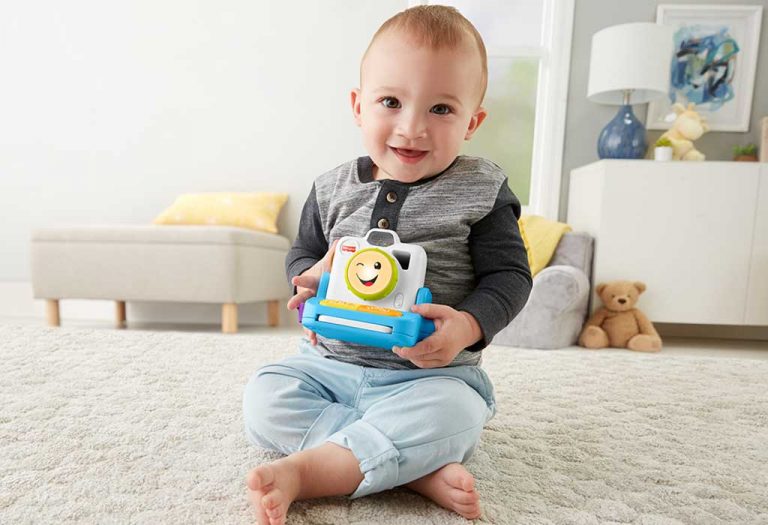7 Signs of a Musically Gifted Child
Signs of musical talent in toddlers can seldom remain hidden for long. Be it ways in which they listen to music or dance to their favorite songs, the signs that give away future musical geniuses are many. Here’s how to gauge the music ability in toddlers in your life too.
Normally, toddlers love to jive and shake a leg when they hear their favourite notes. As soon as they hear their kind of music, like “Four Little Monkeys”, you’ll find them tapping their toes or shaking themselves cutely. However, the less musically inclined kids lose their tempo soon. You will find them stopping midway, crashing into others, or making funny moves in the name of dance. The ones who’re inclined towards music will showcase a different, totally musically engrossing demeanour. So, how can you tell that your little brat, who’s so fond of beating pots and pans, would be a future rock star? Take a look at these signs of a musically gifted child.
Top Signs of Musically Talented Toddlers
Musical talent in toddlers can often be spotted early, as they naturally express their love for rhythm and sound. Recognizing these signs can help nurture and encourage a child’s musical development. We’ll now explore some top indicators of musical talent in young children.
1. Presence of Rhythmic Movements
Watch for rhythmic movements in your toddler’s dance steps. Musically advanced kids would sway to music in time, tap their toes correctly, and make some right moves. In most cases, toddlers who love music would tap a tambourine or play the drums naturally. These abilities are usually demonstrated before they are 3 years of age and, sometimes, a little later.
2. Interest in Exploring Musical Instruments
Musically talented toddlers often show a keen interest in exploring various musical instruments. They may be drawn to playing with instruments they find around the house, such as a toy piano, xylophone, or even makeshift instruments like pots and pans. This curiosity and willingness to experiment with sound are signs of budding musical ability.
3. Awareness of Sounds
You need to listen to your child’s conversation carefully, especially on subjects related to all that he hears around him. As per experts, musical ability in toddlers can be assessed to a large extent in the way they are aware of the sounds of other children, flowing water, noisy cars, music from your car’s stereo, and so forth.
4. Catching What’s Out of Tune
One of the telling signs of musical talent in toddlers is when they take notice of music that’s played out of tune. Try playing a song of his choice and make a mistake in its melody or tune. If your little one is musically gifted, he would notice that something’s amiss. Also, such kids would catch onto songs easily and are likely to mimic the sounds of musical instruments heard earlier on, that too in tune.
5. Reproduction of Beats and Melody
It’s a good idea to encourage your 16-month-old to play instruments. For instance, try playing a keyboard or piano and see whether he’s able to reproduce a beat or a melody. You may be surprised to hear something that’s absolutely original or close to what he’s heard!
6. Positive Evaluations by a Music Professional
Music talent in 16-month-old kids can be best evaluated and honed in by a music teacher or a professional. So, if you happen to reside near a school that has a music program, find out if there’s more to your kid’s musical talent than what meets your eyes.
7. Emotional Response to Music
A toddler with musical inclination may show a strong emotional response to music, whether it’s joy, excitement, or calmness. They might ask for specific songs to match their mood or use music as a way to soothe themselves. This emotional connection indicates a deeper understanding and appreciation of music.
How to Nurture Your Child’s Music Talent?
Nurturing a child’s musical talent from an early age can be a rewarding experience for both the child and the parents. We’ll now explore practical ways to encourage and support your child’s musical journey.
1. Provide Access to Musical Instruments
Introduce your child to various musical instruments to spark their curiosity and interest. Start with simple and age-appropriate instruments like a toy piano, tambourine, or ukulele. Allowing your child to explore different sounds and rhythms can help them discover their preferences and develop basic musical skills.
2. Enroll in Music Classes
Consider enrolling your child in music classes or lessons to provide structured learning and guidance. Look for classes that are designed for young children and focus on fun, interactive activities that teach basic musical concepts. Group classes can also provide social interaction and collaboration with other budding musicians.
3. Encourage Active Listening
Develop your child’s listening skills by playing a wide variety of music at home. Encourage them to listen actively by asking questions about the music, such as identifying different instruments or discussing how the music makes them feel. This practice enhances their ability to recognize musical patterns and develop a deeper appreciation for music.
4. Create a Musical Environment at Home
Make music a part of your daily routine by singing songs, playing background music, and engaging in musical activities as a family. Creating a musical environment at home reinforces the importance of music and provides regular exposure, helping your child feel comfortable and inspired to express themselves musically.
5. Support Their Interests and Progress
Pay attention to your child’s musical interests and progress, and provide encouragement and praise for their efforts. Celebrate their achievements, whether it’s learning a new song or mastering a particular instrument. Supporting their passion and acknowledging their hard work can motivate them to continue exploring and growing in their musical journey.
FAQs
1. Can musical talent in a child be inherited?
While musical talent can be influenced by genetic factors, it is not solely determined by heredity. Children with musically talented parents may have a predisposition to musical ability due to shared genetic traits. However, environmental factors, exposure to music, and access to musical education play crucial roles in nurturing and developing a child’s musical talent.
2. How can I tell if my child is musically gifted or just enjoys music?
Determining if a child is musically gifted involves observing their abilities and interest levels over time. Musically gifted children often show exceptional abilities in recognizing pitch, rhythm, and melody, as well as the capacity to replicate or create music. They may also demonstrate an unusual emotional connection to music. Enjoyment of music alone does not necessarily indicate musical giftedness, but it can be a foundation for developing talent with proper encouragement and support.
3. At what age can a child’s musical gift be identified?
A child’s musical gift can sometimes be identified as early as toddlerhood, when they begin to show an interest in music and musical instruments. Signs of musical talent can become more apparent as the child grows, often by preschool or early elementary age. These signs include an ability to reproduce melodies, a keen sense of rhythm, and an interest in learning new instruments or musical concepts. Early identification can help parents provide the necessary resources and support to nurture their child’s talent.
Remember, if your baby is particularly talented you can always enroll him in structured music lessons. In due course, he can apply to a school that supports gifted children too.
Also Read:
Creative Talent Show Ideas for Kids
How Can You Make Your Child a Prodigy?
Gifted Children: Characteristics, Traits and Challenges
Scientifically Proven Ways to Raise a Well-Rounded Child
Was This Article Helpful?
Parenting is a huge responsibility, for you as a caregiver, but also for us as a parenting content platform. We understand that and take our responsibility of creating credible content seriously. FirstCry Parenting articles are written and published only after extensive research using factually sound references to deliver quality content that is accurate, validated by experts, and completely reliable. To understand how we go about creating content that is credible, read our editorial policy here.













.svg)
















